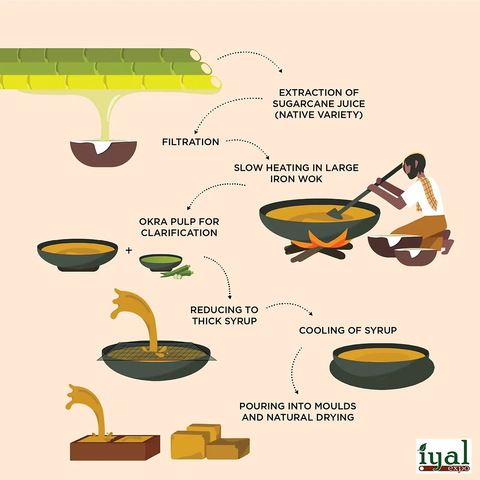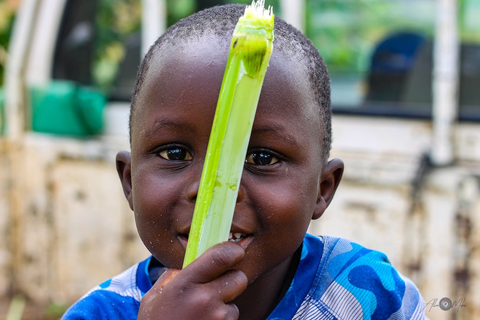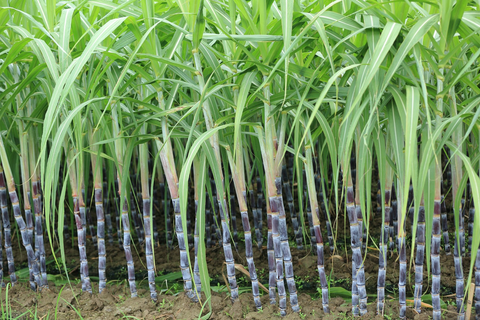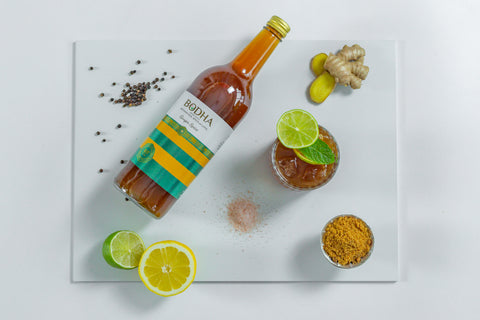
Manufacturing Process of Jaggery
The sweet smell of boiling sugarcane juice greets one as one approaches the small thatched sheds that are used to make Jaggery by the farmers who grow the Sugarcane. The background music of the thrumming sugarcane crusher and the spiral of smoke going skywards from the roof augurs.
A massive furnace is dug into the ground. The juice is poured into a large pan that can hold almost 400 to 500 litres and stirred continuously with the fire underneath being constantly adjusted. The fuel of choice is the dried sugarcane bagasse. The boiling sugarcane juice is cleaned using very small quantities of baking soda (and in some cases the juice of okra stems) to bring up all the dirt and impurities. It is then filtered and the dregs are used in the farm as manure to fertilize the fields.
The men skilfully and rhythmically stir the liquid, not allowing it to become lumpy or burnt. After about two hours of continuous stirring the thickened juice, now free of impurities is poured into another dry pan sitting on the mud floor. In the next hour the thick liquid is turned with large flat ladles that resembles the oars. This continues till the thick liquid begins to take on a powdery consistency. Adding a tiny bit of natural lime and a little organic coconut oil to it helps to get the right consistency and this is let to cool.

History of Jaggery
Jaggery has a long history that can be traced back thousands of years. Its origins can be found in South Asia and Southeast Asia, where sugarcane cultivation began. The process of making jaggery likely evolved from the ancient practice of extracting sugarcane juice and boiling it to produce a solid form of sugar. Over time, this technique spread to other regions like Africa and Latin America, where similar methods were used to produce similar unrefined cane sugars like panela.


Historically, jaggery has been an integral part of the traditional diets and culinary cultures of many communities. It has played a significant role in various religious and cultural practices in countries like India and Sri Lanka. For example, jaggery is used as an offering in Hindu rituals and festivals.
Jaggery Benefits
As for the benefits of jaggery, it is often considered a healthier alternative to refined sugar due to the following reasons:
1. Nutrient Content: Jaggery retains more of the natural nutrients present in sugarcane or date palm juice. It contains essential minerals like iron, calcium, magnesium, and phosphorus. It also contains trace amounts of vitamins and antioxidants.
2. Digestive Health: Jaggery is believed to stimulate digestive enzymes, aiding in better digestion. It is often consumed after meals to help with digestion.
3. Energy Boost: The natural sugars in jaggery provide a quick and sustainable source of energy. It is a common practice to consume jaggery before or after physical activities or as a way to combat fatigue.
4. Blood Purifier: In Ayurvedic medicine, jaggery is considered a blood purifier and is used in various traditional remedies to cleanse the blood and improve overall health.
5. Cough and Cold Relief: Jaggery is sometimes used as a home remedy to relieve coughs and colds. It is often combined with other ingredients like ginger or black pepper for added benefits.
6. Anaemia Prevention: Jaggery's iron content may help in preventing and treating iron-deficiency anaemia.
7. Immune System Support: The presence of antioxidants in jaggery may help support the immune system and protect the body from oxidative stress.

Use of Jaggery in our Ginger Spice Drink
The use of jaggery in the Ginger Spice drink from Bodha Drinks not only infuses the beverage with a rich, caramel-like sweetness, but also encapsulates the historical and health benefits of jaggery.
This natural sweetener brings to the drink its nutrient content, aiding digestion, providing an energy boost, and contributing to its unique flavour profile. As you savour each sip, you're not just indulging in a delicious beverage but also tapping into the tradition, culture, and well-being that jaggery has symbolised for generations.
